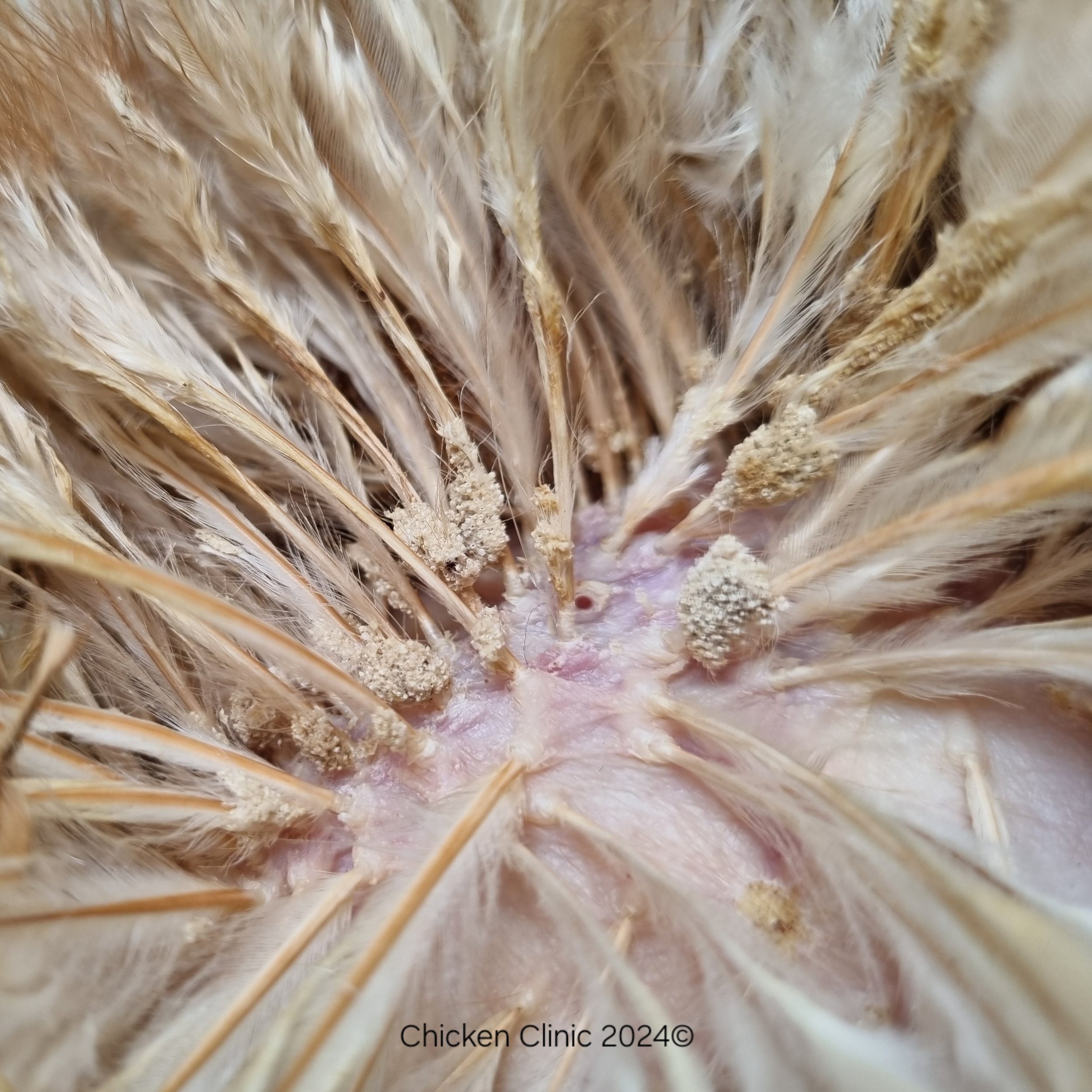Chicken Lice
Less than 2 minutes read time
What are chicken lice?
The chicken body louse (Menacanthus stramineus) is a small yellow/brown parasite, about 2-3mm in length. The lice can affect chickens and turkeys. They chew on feathers and skin, and feed on the skin ‘ooze’ and blood from damaged feathers. Their mouth parts are not developed enough to directly feed on blood from biting the skin.
Where do they live?
The lice spend their entire life (about 3 weeks) on the bird, and will not survive for long in the environment. Lice are no risk to humans.
Part the feathers and look towards the skin, the lice move quickly, but you may see them scatter when they’re exposed to light.
The easiest way to check for lice is to look for the egg clusters, these are clumps of whitish/ grey material at the base of the feather shaft near to the skin. The best place to check is around the vent and under the wings.
What problems do the lice cause?
The lice can be stressful and irritating to the birds, resulting in restlessness, over preening and sometimes feather loss. In heavy infestations, you may see crusting of the skin, inflammation and potentially weight loss and reduced egg production. However, without actively checking, you may not be aware that your birds even have guests! They are not dangerous to the birds as such, but infestations tend to be heavier in poorly birds and birds with difficulty grooming (e.g. beak deformity), as they may have difficulties keeping lice numbers under control.
Do I need to treat?
If the birds are able to preen and have access to a dust bath, then they are pretty effective at keeping the lice numbers under control. However, if there are signs of stress such as feather damage and restlessness then treatment is warranted.
Please don’t pick off the egg clusters, however tempting this may be! You’ll probably end up plucking the feathers and this will be distressing and painful for the bird. The feathers will be replaced at the next moult.
There are treatments available for lice. Check with your vet which treatments are appropriate for use in poultry. Cat and dog treatments may not be suitable for poultry and some over the counter treatments can be harmful to cats.



